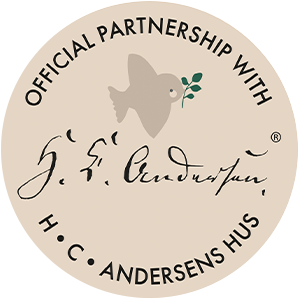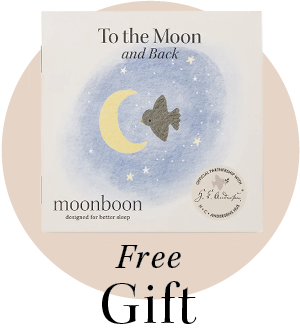


Breastfeeding is a natural way to nourish and care for a baby, offering important physical and emotional benefits. It helps build a strong bond between parent and child while providing the nutrients and immune support babies need for healthy growth and development. If you’re planning a pregnancy, expecting a baby, or have recently welcomed one, learning about breastfeeding can help you feel more confident and supported in your journey.
We have gathered some key points to help you understand the positive impact breastfeeding can have on both parent and baby. Whether you're seeking health benefits, convenience, or a deeper connection with your little one, breastfeeding offers a variety of advantages that could make it the right choice for your family’s well-being.
1. Made for your baby’s growth and development
Breast milk is perfectly suited for your baby’s digestive system. It is naturally the right temperature and easy for your infant to digest, (which often means less burping after meals). In contrast, formula may take some trial and error to find one your baby can tolerate, and there have been concerns about recalls due to contamination and the risk of necrotizing enterocolitis (NEC) in premature infants. Breast milk contains the ideal balance of protein, carbohydrates, fat, vitamins, and minerals, making it the most complete and digestible option for your baby's growth and development.
2. Natural pain relief for babies
Breastfeeding can serve as a natural form of pain relief for your baby, offering comfort during moments of discomfort, such as vaccinations, teething, or minor illnesses. The act of sucking helps release soothing hormones, like oxytocin, which promote relaxation and can ease pain. This calming effect can help reduce a baby’s stress and discomfort, providing them with immediate relief. The warmth and closeness during breastfeeding can also contribute to emotional comfort, making it not only a source of nourishment but also a powerful tool to help soothe baby in times of need.
3. Protection
Breast milk plays a key role in helping protect your baby from sickness and disease by building a strong immune system. One of the most important ways it does this is by passing on antibodies from mom to your baby. These antibodies help baby develop a strong defense against illness and infections, giving them essential protection in their early days.
Moreover, in the first few days after birth, mom's body produces a special first milk called colostrum, which is packed with antibodies and nutrients. Colostrum helps protect baby by coating their digestive system, making it harder for harmful germs to take hold and cause illness. This early protection is especially important for premature babies, whose immune systems are still developing and may need extra support to stay strong.
Breastfeeding helps lower the chances of babies developing:
- Diarrhea, ear infections, and lung infections
- Sudden Infant Death Syndrome (SIDS)
- Being overweight or obese later in life
- Heart disease as they grow older
Additionally, breastfeeding may help baby’s response to vaccines. Research shows that babies who are breastfed may have a stronger reaction to vaccinations, as the antibodies passed through breast milk support the body’s ability to fight off illnesses, potentially making vaccines more effective.
By breastfeeding, you are not only providing nourishment but also giving baby an extra layer of protection for a healthier start in life.
4. Supports strong development
Breastfeeding plays a key role in baby’s development. Research shows that children who were breastfed tend to score higher on intelligence (IQ) tests and may stay in school longer. The nutrients and bonding moments during breastfeeding help support brain development and lay the foundation for lifelong learning.
Breastfeeding also contributes to speech development. Studies have found that breastfed children often develop clearer speech and are less likely to need speech therapy when they start school. This could be because the flexibility of the mother’s nipple helps strengthen the muscles used for speech in a way that bottle nipples, which are less flexible, cannot. This support helps babies develop better communication skills as they grow.
Breastfeeding also fosters sensory development. It is a multi-sensory experience that goes beyond taste and smell, incorporating touch through skin-to-skin contact. This sensory interaction plays a key role in helping babies develop their sensory processing skills, enabling them to better recognize textures, tastes, and even temperature changes. The close connection and hands-on experience of breastfeeding help babies become more aware of their surroundings and contribute to strong overall development.
5. Convenience
It may seem simple or obvious, but one of the biggest advantages of breastfeeding is that mothers can feed their babies anytime and anywhere. There is no need to worry about preparing bottles, mixing formula, or warming up milk—breast milk is always ready and perfectly suited for baby, no matter where one may be. Whether mom is out running errands, traveling, or enjoying a walk in the park, breastfeeding makes it easy to nourish baby on the go.
Breastfeeding offers comfort when a baby’s routine is disrupted, such as when away from home. The act of breastfeeding can help soothe and calm your baby, offering them a familiar source of comfort and security in an unfamiliar environment.
For parents who already have so much on their minds and value flexibility, breastfeeding offers a straightforward and adaptable way to care for a baby, giving you the freedom to go about your day with less hassle and stress.
6. Breast size and breast augmentation do not affect the ability to breastfeed
The size of a mom's breasts does not affect the ability to breastfeed. Milk production is determined by the amount of glandular tissue, not the size of breasts, so even smaller breasts can produce enough milk to nourish a baby. This is a benefit because it means that any mother, regardless of breast size, can confidently breastfeed without worrying that their body is not capable of providing the right nourishment.
For women with breast implants, breastfeeding is also possible and safe in many cases. If the milk ducts were not damaged during surgery, most mothers with implants can still breastfeed successfully. This allows any mother to experience the benefits of breastfeeding, such as bonding with baby and providing essential nutrients, even after breast augmentation.
Consulting with a healthcare professional can help ensure you have the right support, but for many mothers, breastfeeding with implants is entirely feasible.
7. Supports maternal health
Breastfeeding offers important health benefits for mothers as well as babies. Research shows that breastfeeding can lower a mother’s risk of developing several serious conditions, including breast cancer, ovarian cancer, osteoporosis (weak bones), diabetes, and heart disease.
Breastfeeding also helps the body heal after childbirth by stimulating the uterine muscles to contract, which can prevent heavy bleeding and help the uterus return to its pre-pregnancy size more quickly—usually within about six weeks.
Exclusive breastfeeding (giving your baby only breast milk) can also delay the return of a menstrual cycle for a time, though it’s important to remember that you can still become pregnant even before your periods return. Breastfeeding has also been linked to a reduced risk of postpartum depression (PPD), with the positive effects often continuing through the first few months after birth.
On top of that, breastfeeding can actually support better sleep for mothers. The hormone prolactin, released during breastfeeding, can make it easier to fall back asleep after nighttime feedings, helping parents feel more rested overall.
Some research even suggests that breastfeeding for longer periods may help delay early menopause, which can protect long-term health by reducing risks like bone loss and heart disease. In many ways, breastfeeding helps support a mother's physical and emotional well-being while she cares for her growing baby.
8. Develops the bond between parent and baby
Breastfeeding creates a deep and lasting connection between parent and baby. Through skin-to-skin contact, touch, and the sound of mom's voice, baby feels comforted, safe, and secure. This close physical connection not only soothes baby but also helps build trust, an important part of emotional development.
While mom breastfeeds, her body releases oxytocin, often called the "love hormone," which strengthens feelings of love, attachment, and relaxation in both her and baby. These simple yet powerful moments of closeness help promote emotional bonding, creating a strong foundation for your relationship that can last a lifetime.
9. Supports baby’s growth over time
Breast milk is incredibly useful as baby grows because it provides essential nutrition for a long time. During the first six months, it is the only food or drink your baby needs, offering a perfect balance of nutrients and hydration. As baby begins to explore solid foods, breast milk adapts to their changing needs, offering ongoing support for their growth and development. Even as their diet evolves, breast milk remains an important part of their daily nutrition, helping to boost their immunity and ensure healthy development over time.
10. Good for the planet
Breastfeeding is better for the planet because it does not require packaging, shipping, or production like formula does. Breast milk is made and delivered right to the baby. With this, it also helps reduce waste by eliminating the need for bottles, cans, and plastic. By breastfeeding, you can help to minimize your environmental impact while nourishing your baby.
11. Easy on the budget
Breastfeeding is a great way to save money, especially when compared to formula feeding. Formula can quickly get expensive over time, with the cost of purchasing multiple cans, bottles, and other accessories adding up quickly. With breastfeeding, you do not need to worry about buying formula, sterilizing bottles, or spending money on extra supplies. Instead, mom's body provides the perfect nutrition for the baby, and it is always available whenever they need it, making it a more affordable option for new parents.
12. May help space out pregnancies
Breastfeeding may help space out pregnancies, which can be a relief for some new parents. Exclusive breastfeeding can delay ovulation due to lactational amenorrhea, a natural process that can act as a form of birth control during the first six months postpartum. This means that if you're exclusively breastfeeding, your body might not release eggs, reducing the chances of getting pregnant during this period.
It is important to remember, though, that this is not foolproof, and it is always a good idea to talk to your healthcare provider about family planning.
Supporting you on your feeding journey
Breastfeeding offers a wide range of benefits—for your baby, for you, and even for the planet. From boosting your baby's immune system and supporting their development to helping you heal after birth and reducing health risks later in life, breastfeeding can have a positive, lasting impact. It is convenient, cost-effective, environmentally friendly, and creates a special bond between you and your baby through simple, everyday moments of closeness.
If you’ve started breastfeeding but are struggling, know that you are not alone. It can take time to get the hang of it, and some challenges are normal. If positioning is difficult or you're experiencing discomfort, consider trying different positions or using a nursing pillow to provide extra support. Don't be discouraged—many parents find that with a little patience, practice, and the right tools, breastfeeding becomes easier and more enjoyable.
That said, it is important to remember that every family’s journey is unique. Choosing how to feed your baby is a personal decision, and there’s no one “right” way. If breastfeeding works for you, it can bring incredible benefits—but if it does not that's okay too. Formula feeding is a safe and healthy option, and your love, care, and attention are what truly matter most.
Whatever path you choose, you are doing an amazing job nurturing your baby and giving them the best start in life.




































